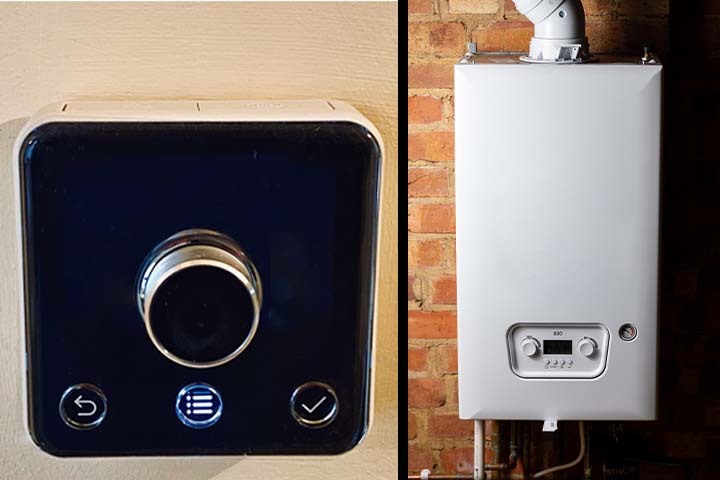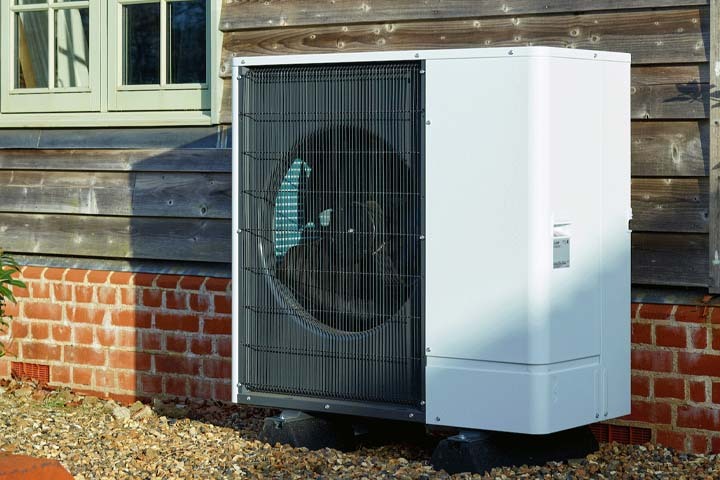Table of Contents
One thing continues to float in our minds as the world turns to more sustainable options: are gas boilers being phased out? As concerns around climate change and air quality grow, many homeowners are wondering what this means for their heating systems, which, across the UK and other parts of the world, largely rely on the staple of the gas boiler.
In this article, we are going to explain exactly what the future holds for gas boilers banned including why they might be on their way out and what is emerging to replace them. If you are curious whether your trusty boiler will continue to keep on running or if it’s time to think about a whole new heating system, read on to explore all that you need to know!
Will Gas Boilers Really Become Obsolete?
The future of gas boilers is under inspection now as the world is gradually taking a greener way. They have performed reliably over the last many decades, but at present, societal values and environmental awareness push us to reconsider their importance in home heating. If governments are getting stricter concerning the regulations regarding carbon emissions, then pressure mounts on traditional systems, like gas boilers. Most people think that this decade is going to witness a drastic fall in dependency on fossil fuel sources.
New advanced technologies evolve and develop as a much more high-tech, environmentally friendly means, even capable of being more efficient than conventional heating methods. Clearly, efficiency improvements as well as reduced carbon footprints have made gas boilers one of the solutions that do not fit into this new landscape.
Consumers are becoming more conscious of their choices and seeking more sustainable options in upgrading or replacing old heating systems. The increasing need for a greener solution suggests that gas-fired heating may not be in our future, as we strive for a cleaner planet.
How Long Will Gas Boilers Be Around?
Boilers are probably going to be replaced in the future. Current trends indicate their use will reduce over time as the world uses greener solutions. Experts believe that the zero-emission heating system will become mainstream very soon. Some UK homes will continue to use gas boilers for some more years, but those might vanish altogether by 2030. Customer demand and stricter regulations are forcing the shift toward cleaner energy. Environmental regulation will also make older units difficult to keep running. Homeowners may believe they need to act sooner than later to find a replacement.
New technology is emerging at an absolutely mind-boggling rate. Innovations are apt to redefine home heating options, and most of these people would shift away from gas systems altogether. As awareness grows regarding climate change, the urgency to shift towards sustainable solutions becomes evident.
Why Are Gas Boilers Phasing Out?
This phase out is primarily driven by the environment. Traditional gas boilers emit an amount of greenhouse gases, which trigger climate change.
Energy-Efficient Alternatives: Innovation becomes a key driver for the phase-out of gas boilers. Innovative technologies, such as heat pumps and solar thermal systems have been developed as energy-efficient alternatives for heating which inherently reduce the carbon footprint by default.
Strict Energy Efficiency Standards: The government also increases the standard for strict energy efficiency. Regulations to adopt greener heating solutions which are consonant with long-term sustainability goals are being implemented.
Energy Conservation: Public awareness about energy conservation is also on the rise. As such, people are becoming more conscious of their choices and are seeking to have sustainable options for home heating.
With the course that society is now taking towards renewable sources of energy, dependency on fossil fuels has become more unfeasible in this modern era. A shift toward promises made for maximum efficiency and minimum emission through technological advancements translates to a deeper gesture that takes a step towards protecting our planet.
Environmental Protection
Gas boilers emit a lot of carbon. As countries commit to reducing their carbon footprint, this is an easy precursor of a much overdue request: cleaner energy sources. Fossil fuels are one of the prime causes of climate change. The major step toward environmental protection would be the eventual phasing out of gas boilers. More eco-friendly heating systems will prevent this type of air pollution and its resultant harm on human health. Emerging innovative heating technology promises a greener future. Renewable energy sources include solar and air that offer extremely compelling solutions without causing harm to our planet in meeting heating requirements.
The urgency is felt. Communities rally behind the environmental initiative in this pursuit of sustainability. Every little effort counts in this larger fight against climate change. The step out from gas boilers aligns with global efforts to create a healthy environment for future generations.
Emergence of New Technology
New technology is revamping the heating world. Some of these new systems are gas-boiler alternatives and have lately gained all the attention. Among the most important ones is the heat pump. With the aid of heat pumps, ambient air or ground heat is used, transformed into a thoroughly reliable source for homes. This system works pretty effectively and saves a lot more carbon footprint. Smart home integration is another really exciting development. Here, thermostats and control systems in the house will help manage the heating, allowing homeowners to adjust and monitor their thermostats remotely to boost performance without losing out on any output. Such precision was unfathomable with older gas boiler models.
Hydrogen fuel technologies have also come forth as promising alternatives for heating homes without direct emissions. As research proceeds, these do not only promise efficiency but sustainability on a greater scale as well. The shift in consumer preferences toward these solutions will require embracing some of these innovations if we are to modernise our approach to home heating.
Improvement of Energy Efficiency Standards
The innovative standards of energy efficiency are continuously evolving, resulting in the discontinuation of gas boilers. As the governments are releasing the seriousness of reducing the carbon footprints, they implement strict guidelines for heating systems.
The range forces manufacturers to introduce more environmentally friendly variants of the products. This eventually leads to energy-efficient heating solutions that consume the least amount of energy while still ensuring maximum comfort.
New regulations constantly come into effect that require better performance ratings from the appliances. Generally, this puts significant stress on older gas boilers because they may no longer reach the thresholds set by the government. Also, a large number of consumers are becoming more environmentally conscious. Most would want to have alternatives besides just lowering their bills that would also positively impact the environment.
Government Policies and Regulations
Government policies are the most influential in determining the outcome of heating systems in the future. In this regard, several countries are planning to implement rules that will reduce carbon emission by increasing the percentage of environmentally friendly energy usage for heating purposes. The rules might be enforced through the deadlines for phasing out gas boilers, encouraging homeowners to adopt greener heating alternatives. The UK Government may also offer incentives and grants for implementing such eco-friendly solutions that would make the transition easier. Regulations can further spur manufacturers to innovate, leading to a more efficient technology in energy consumption. This ensures that as traditional heating methods decline, modern replacements become more predominant.
Climate change issues are now taking centre stage, policymakers recognise the need to phase out from fossil fuel dependency. At this instance, alternative technologies flourish and positively contribute to environmental objectives.
Alternatives to Gas Boilers
With the growing urgency towards sustainability, there are a number of viable alternatives to gas boilers. Listed below are a couple of them;

1. Air Source Heat Pumps
Air source heat pumps are increasingly marketed as an extremely efficient alternative to gas boilers. It operates under the premise of harnessing heat from outside air, even very cold conditions, and transferring that heat inside to warm a home. This renewable energy source reduces dependence on fossil fuels. Installation is not all that difficult, especially compared to other heating systems. Most homeowners like that they require minimal maintenance and the lifespan of an air source heat pump is long. They are also great in saving energy costs in the long run.
Another characteristic that can very well be ascribed to these systems is flexibility. They can easily provide both heating during the winter and cooling for summer months. The installation cost of such a shift is being offset by governments through incentives and grants, making greener technologies not only environmentally-friendly but also financially attractive.
2. Air to Water Heat Pumps
Just like air source heat pumps, air to water heat pumps are also a popular alternative to gas boilers in many UK homes.These systems are extremely efficient, as they will provide both heating and hot water for your home. This makes them especially attractive for those who wish to reduce their dependence on fossil fuels.
Installation is relatively simple and uses less space than a traditional system in most situations. Running costs are also much lower when compared to a gas boiler. There is a high initial investment, although government incentives can be claimed over the cost involved. The efficiency of these pumps continues to enhance as time goes by, which contributes greatly towards reducing carbon emissions. So for those who are environment-conscious, that is just another reason to make this transition.
3. Biomass Boilers
Biomass boilers are increasingly becoming a great alternative to traditional gas systems. They use organic materials like wood pellets or agricultural waste. This makes them a renewable energy source that can easily cut your carbon footprint to a great extent. One of the prominent characteristics of biomass boilers is their high efficiency. In reality, up to 90% of the biomass can be converted into usable heat by these systems, making them a highly effective solution for heating homes.
Installation costs are sometimes higher when compared with gas boilers, but on the cost-saving side and long-term viability, they tend to be a worthwhile investment. The UK government offers grants and other incentives to help offset these installation costs.
Maintenance is obviously essential with biomass systems. The periodic checks ensure that they operate at their best for as long as possible. And as more individuals are choosing eco-friendly alternatives, installing a biomass boiler might suit personal values and environmental responsibilities.
Cost Of Replacing a Gas Boiler With an Eco-Friendly Alternative
There is a tremendous difference in the cost of replacing your gas boiler with a zero-emission alternative. For example, air-source heat pumps or biomass boilers are generally in the range of £8,000 to £15,000.
Installation also incurs costs. Most of these systems require adjustments in existing pipelines and electrical fittings. Perfect functioning might need professional installation. There are government incentives available, which may help to offset part of these costs. There might be grants available that reduce the initial financial stress.
Will I Have to Replace My Gas Boiler after 2025?
As 2025 approaches ahead, every homeowner in the UK is getting increasingly concerned about the future of a gas boiler. Government has planned to phase out fossil fuel heating systems in new constructions of course, but existing installations may not be affected immediately. If your boiler is working and up-to-date with the latest efficiency standards, you might avoid immediate replacement. On the other hand, keep updated with a local regulation that may impact your heating choices later.
According to many experts, it will prove smart to consider alternatives now rather than waiting for a shift enforced by law. It will save money and the environment in the long run. Consider your sustainable heating options seriously. Transforming away from gas doesn’t have to be overwhelming if you plan ahead. Sustainable solutions are embraced for the sake of an eco-friendly home.
Is It Worth Getting a New Gas Boiler?
While investing in a gas boiler may seem daunting, there are several factors that come into play when considering the benefits of this decision. One of the factors is that most of the older boiler models tend to be less efficient. You could save a lot on your energy bills with the upgrade in the long run. Compared to their older counterparts, modern gas boilers operate much more efficiently, making your home warm without the wastage of a lot of energy. Newer types, for instance, incorporate newer technologies that boost performance and capability in service. This would mean less breakdowns and repairs, saving you time and money in the long run. Obviously, all this depends on your home’s heating needs. Every situation is unique, and what works well for one household does not necessarily suit perfectly to another.
Final Verdict
As the governments and industries are demanding greener alternatives, each day makes the future of gas boilers uncertain. The awareness on the environment has picked its pace, it’s undoubtedly obvious that there is a significant shift towards sustainable heating solutions.
The use of gas boilers is under restriction across several regions due to its climatic and air quality impact. Air source heat pumps, biomass boilers, or rather zero-emission options, are picking up to be serious alternatives. The process is certainly not easy but financial grants can help in switching to sustainable heating systems. In the long run, money saved on energy bills and an even smaller carbon footprint are nice benefits.
Frequently Asked Question
No, gas boilers will not be phased out in the UK. The government is promoting more installations with heat pumps and other more efficient systems, though.
There are no current plans to ban gas boilers. Still, the government is focused on reduction in carbon emissions; therefore, any such targets might eventually lead to the restriction on the installation of new gas boilers into buildings.
Yes. There are many government incentives encouraging homeowners to replace gas boilers with a heat pump. Incentives may range from grants, loans, and tax breaks.
Whether or not a gas boiler should be swapped with a heat pump is a decision that hinges on several factors, starting with whether or not the boiler is efficient and relatively new, home energy needs, and even whether the government has incentives available.








